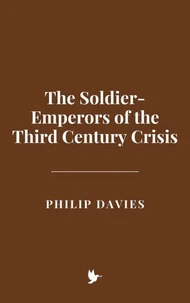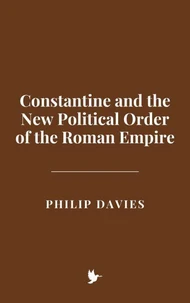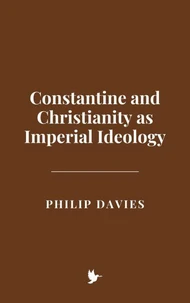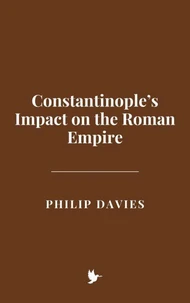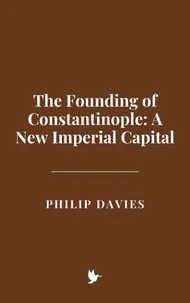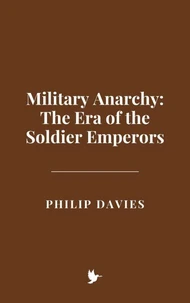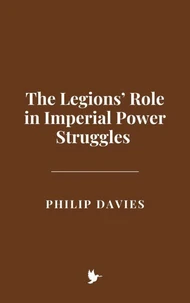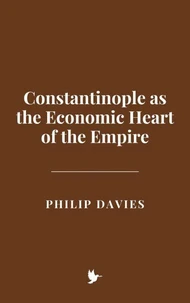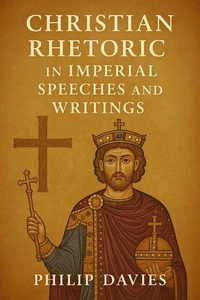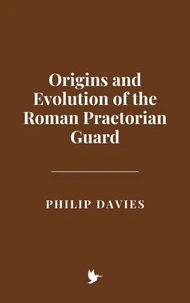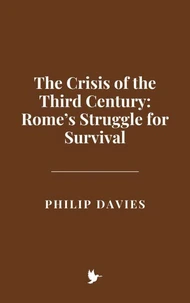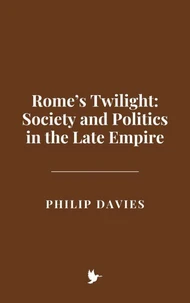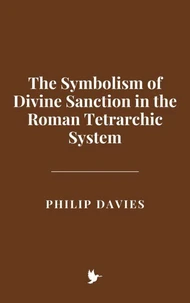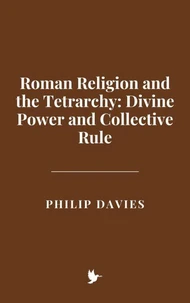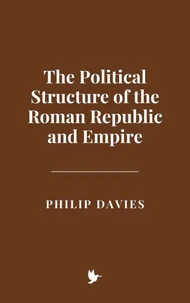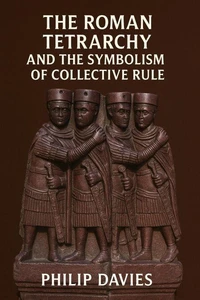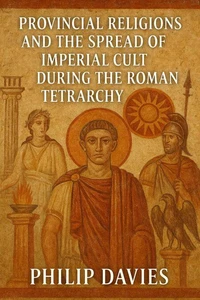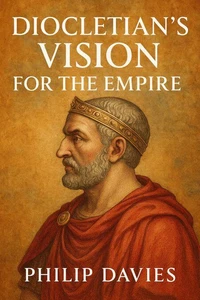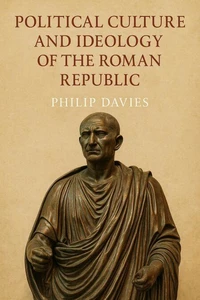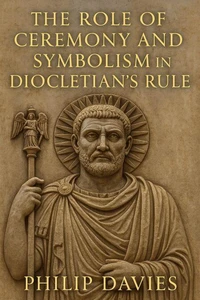The Christianization of the Roman Empire: From Persecution to Establishment
Par :Formats :
Disponible dans votre compte client Decitre ou Furet du Nord dès validation de votre commande. Le format ePub est :
- Compatible avec une lecture sur My Vivlio (smartphone, tablette, ordinateur)
- Compatible avec une lecture sur liseuses Vivlio
- Pour les liseuses autres que Vivlio, vous devez utiliser le logiciel Adobe Digital Edition. Non compatible avec la lecture sur les liseuses Kindle, Remarkable et Sony
 , qui est-ce ?
, qui est-ce ?Notre partenaire de plateforme de lecture numérique où vous retrouverez l'ensemble de vos ebooks gratuitement
Pour en savoir plus sur nos ebooks, consultez notre aide en ligne ici
- FormatePub
- ISBN8231395576
- EAN9798231395576
- Date de parution23/05/2025
- Protection num.pas de protection
- Infos supplémentairesepub
- ÉditeurWalzone Press
Résumé
This comprehensive study traces the monumental transformation of the Roman Empire from a pagan state rife with religious plurality and intermittent persecution of Christians, to a Christian empire where Nicene Christianity became the official religion. Spanning the Severan period through the reigns of Constantine and Theodosius I, Philip Davies meticulously explores how Christianity evolved from a marginalized sect facing brutal oppression into a dominant spiritual and political force shaping imperial ideology, law, and culture.
Drawing on rich primary sources and rigorous historical analysis, the book delves into the social, political, and theological dynamics that fueled this shift. It examines key moments such as the Great Persecution under Diocletian, Constantine's visionary conversion and the Edict of Milan, the Arian controversies during Constantius II's reign, Julian the Apostate's pagan revival efforts, and Theodosius's decisive establishment of Christianity as the state religion.
Beyond political history, Davies reveals how Christianization reshaped Roman society - transforming family structures, moral values, education, art, and religious institutions. This work offers a nuanced understanding of a complex, gradual, and often contested process that redefined the identity of the Roman world and laid the foundations for medieval Christendom. Ideal for scholars and enthusiasts of late antique history, religious studies, and cultural transformation, this book illuminates one of the most consequential chapters in Western civilization's story.
Drawing on rich primary sources and rigorous historical analysis, the book delves into the social, political, and theological dynamics that fueled this shift. It examines key moments such as the Great Persecution under Diocletian, Constantine's visionary conversion and the Edict of Milan, the Arian controversies during Constantius II's reign, Julian the Apostate's pagan revival efforts, and Theodosius's decisive establishment of Christianity as the state religion.
Beyond political history, Davies reveals how Christianization reshaped Roman society - transforming family structures, moral values, education, art, and religious institutions. This work offers a nuanced understanding of a complex, gradual, and often contested process that redefined the identity of the Roman world and laid the foundations for medieval Christendom. Ideal for scholars and enthusiasts of late antique history, religious studies, and cultural transformation, this book illuminates one of the most consequential chapters in Western civilization's story.
This comprehensive study traces the monumental transformation of the Roman Empire from a pagan state rife with religious plurality and intermittent persecution of Christians, to a Christian empire where Nicene Christianity became the official religion. Spanning the Severan period through the reigns of Constantine and Theodosius I, Philip Davies meticulously explores how Christianity evolved from a marginalized sect facing brutal oppression into a dominant spiritual and political force shaping imperial ideology, law, and culture.
Drawing on rich primary sources and rigorous historical analysis, the book delves into the social, political, and theological dynamics that fueled this shift. It examines key moments such as the Great Persecution under Diocletian, Constantine's visionary conversion and the Edict of Milan, the Arian controversies during Constantius II's reign, Julian the Apostate's pagan revival efforts, and Theodosius's decisive establishment of Christianity as the state religion.
Beyond political history, Davies reveals how Christianization reshaped Roman society - transforming family structures, moral values, education, art, and religious institutions. This work offers a nuanced understanding of a complex, gradual, and often contested process that redefined the identity of the Roman world and laid the foundations for medieval Christendom. Ideal for scholars and enthusiasts of late antique history, religious studies, and cultural transformation, this book illuminates one of the most consequential chapters in Western civilization's story.
Drawing on rich primary sources and rigorous historical analysis, the book delves into the social, political, and theological dynamics that fueled this shift. It examines key moments such as the Great Persecution under Diocletian, Constantine's visionary conversion and the Edict of Milan, the Arian controversies during Constantius II's reign, Julian the Apostate's pagan revival efforts, and Theodosius's decisive establishment of Christianity as the state religion.
Beyond political history, Davies reveals how Christianization reshaped Roman society - transforming family structures, moral values, education, art, and religious institutions. This work offers a nuanced understanding of a complex, gradual, and often contested process that redefined the identity of the Roman world and laid the foundations for medieval Christendom. Ideal for scholars and enthusiasts of late antique history, religious studies, and cultural transformation, this book illuminates one of the most consequential chapters in Western civilization's story.




